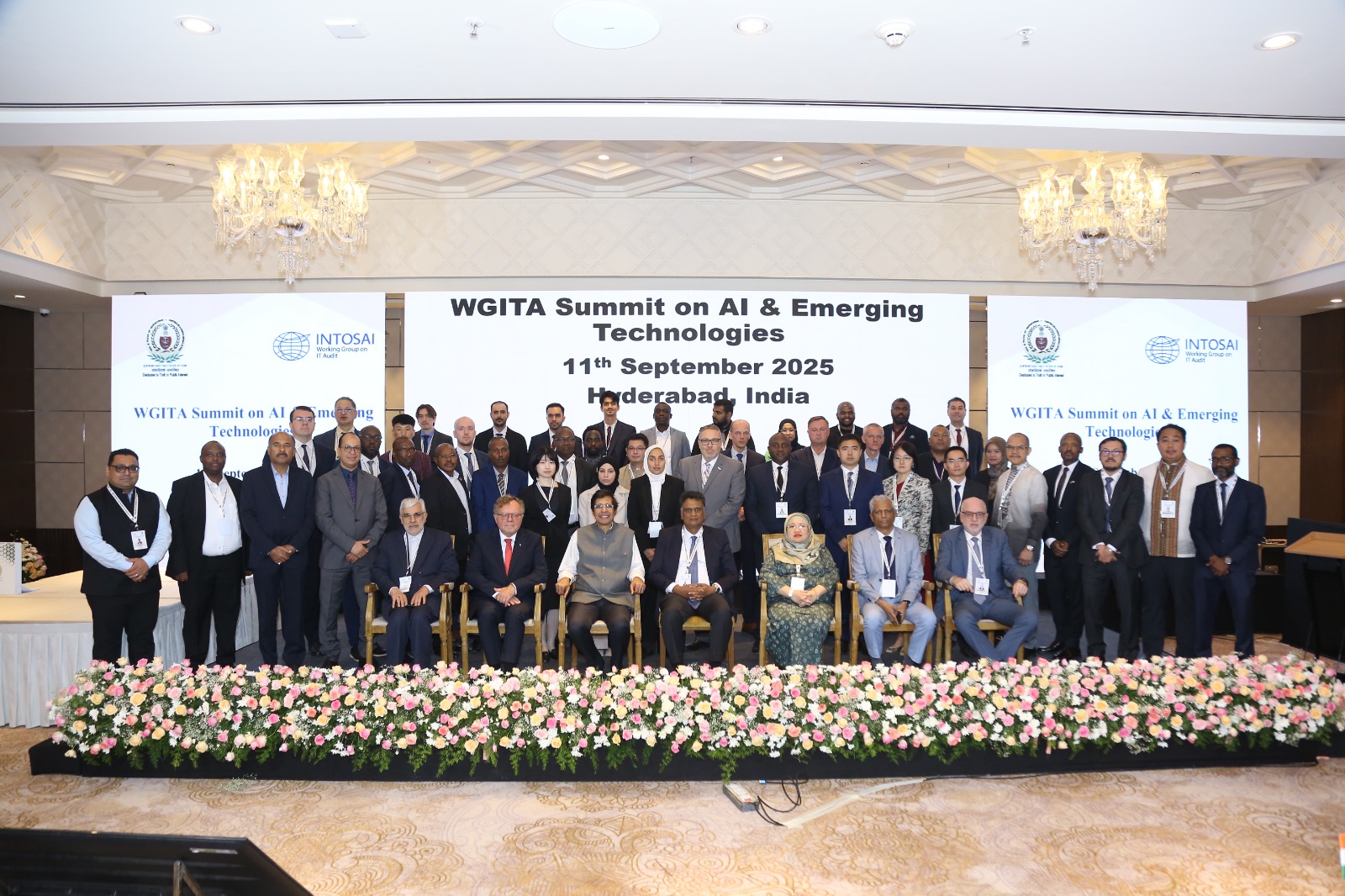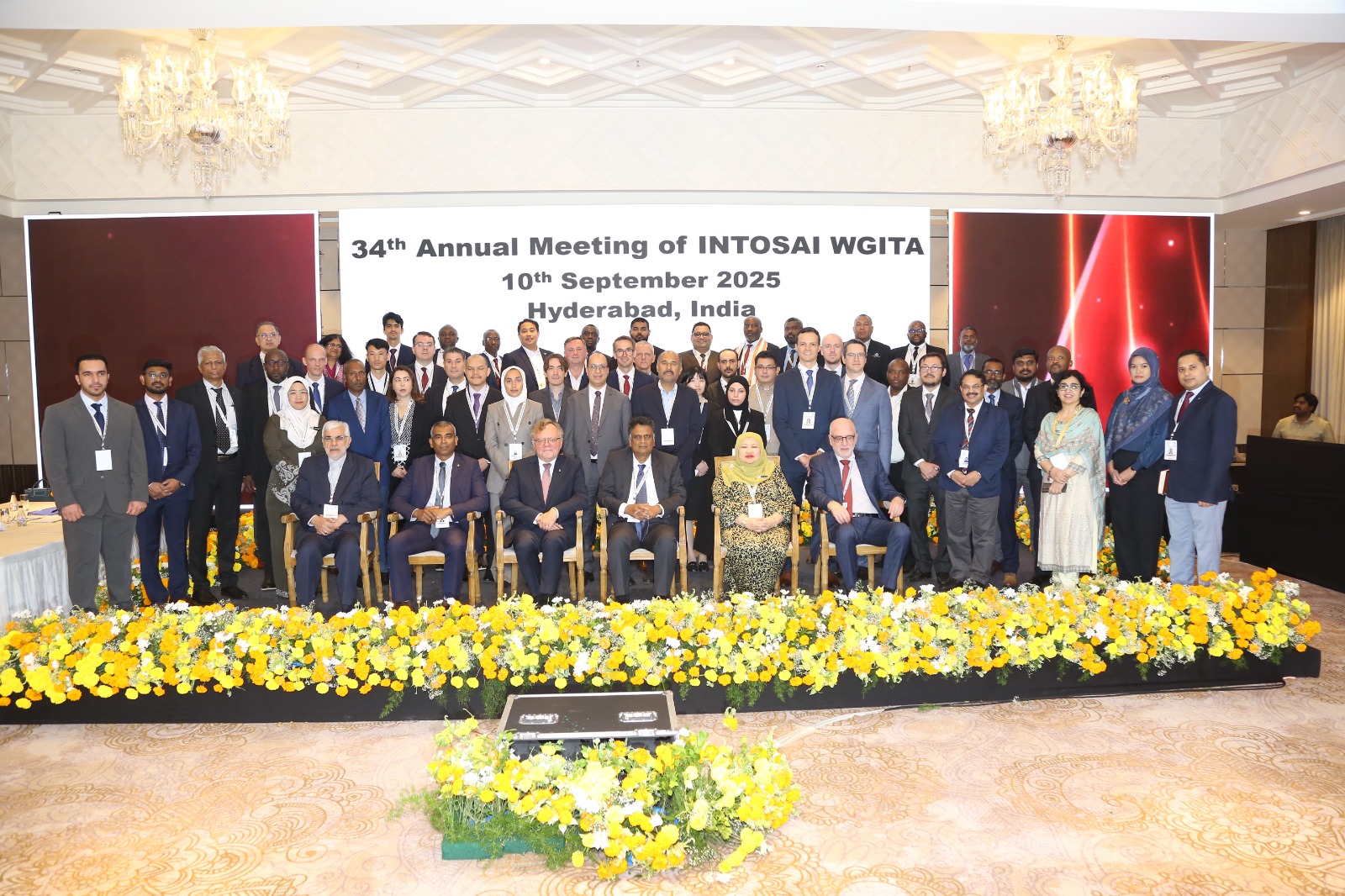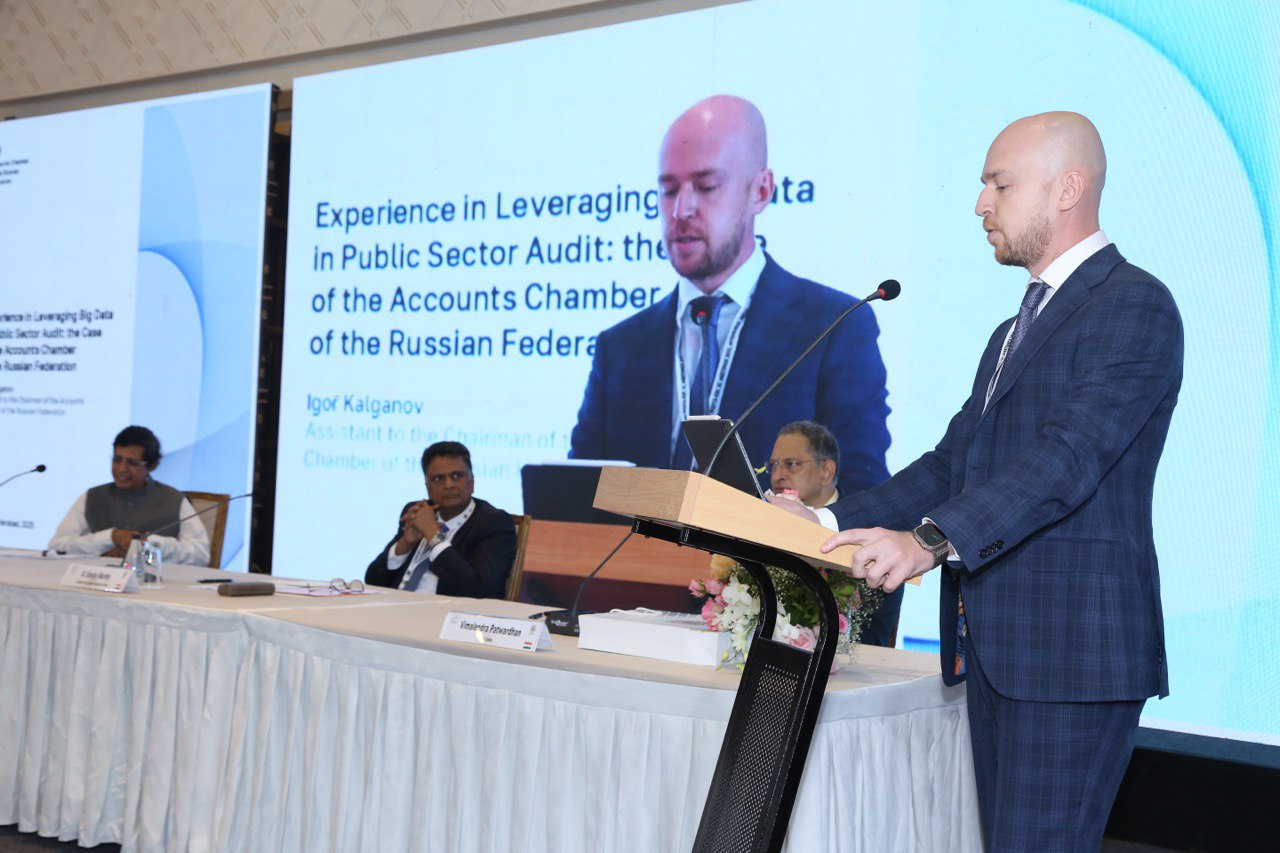INTOSAI Working Group on IT Audit Annual Meeting and WGITA Summit on AI and Emerging Technologies for Supreme Audit Institutions – “A Dialogue on Leveraging Technology and Enhancing Sustainable Audit Practices”
On 10–11 September 2025, the annual meeting of the INTOSAI Working Group on IT Audit (WGITA) and WGITA Summit on AI and Emerging Technologies for Supreme Audit Institutions – “A Dialogue on Leveraging Technology and Enhancing Sustainable Audit Practices” were held in Hyderabad, Republic of India.
The meeting was attended by representatives of the SAIs of Austria, Bhutan, Brazil, China, Czech Republic, Egypt, Estonia, Fiji, Finland, India, Japan, Kuwait, Malaysia, Philippines, Poland, Qatar, Russia, South Africa, Switzerland, Thailand, Türkiye, the United Arab Emirates, as well as representatives of the European Court of Auditors and the INTOSAI Development Initiative (IDI).
The events focused on digital transformation in public auditing, the use of artificial intelligence (AI) technologies, and international cooperation in the field of IT audit.
WGITA Annual Meeting
The meeting was opened on September 10 by Mr. K. Sanjay Murthy, Comptroller and Auditor General of the Republic of India and WGITA Chair. In his opening remarks, he emphasized that the rapid development of digital technologies, including AI, requires Supreme Audit Institutions (SAIs) to establish new approaches ensuring transparency, accountability, and public trust in digital platforms.
The participants reviewed the implementation of the WGITA Work Plan for 2023–2025 and discussed proposals for the forthcoming period of 2026–2028. The key priorities include updating the WGITA-IDI Handbook on IT-Audit, updating the INTOSAI Guidance on Information System Security Audit (GUID 5101), developing new Guidance on cybersecurity audit, Guidance on use & review of AI solutions, conducting studies on remote auditing and the Internet of Things (IoT), and further developing IT databases and mechanisms for experience exchange among SAIs.
Particular attention was given to the AI-based Large Language Model (LLM) project initiated by the SAI of India. Trained on verified audit data, the model is designed to support auditors at all stages of the audit process – from planning to reporting – helping to identify risks, generate audit questions, and ensure analytical consistency while maintaining full control over data accuracy.
Also the representatives their respective initiatives on applying AI and digital technologies in auditing.
WGITA Summit on AI and Emerging Technologies for Supreme Audit Institutions
On 11 September, the WGITA Annual meeting was followed by the WGITA Summit on AI and Emerging Technologies for Supreme Audit Institutions – “A Dialogue on Leveraging Technology and Enhancing Sustainable Audit Practices”.
Mr. Murthy presented the SAI of India’s AI Strategy, which includes the development of the IndiaAI national platform, the creation of a Data Analytics Centre, and the launch of large-scale training programs for auditors in cooperation with leading technological universities.
Professor V. Kamakoti, Director of the Indian Institute of Technology in Madras, presented a report on the practical use of AI in public auditing. He highlighted key areas such as data extraction and analysis, anomaly detection, robotic process automation (RPA), and cybersecurity risk management.
Mr. Igor Kalganov, Assistant to the Chairman of the Accounts Chamber of the Russian Federation (ACRF) presented the ACRF experience in leveraging digital technologies. The key element of the ACRF development strategy involves transitioning to data-centric audit model. Such model implies integrating risk-oriented approach with big data analytics, machine learning, and AI technologies. This model enables a unified digital workspace for both auditors and audited entities, automated identification of irregularities, thereby enhancing the effectiveness of public audit.
During the panel discussion, representatives from the SAIs of India, Poland, Estonia, and South Africa discussed the challenges and prospects of digital transformation in auditing. The discussion emphasized the importance of building a data culture within SAIs, ensuring independent verification of AI-generated findings, improving data governance and security systems, and developing digital competencies among auditors.
Key Outcomes
- Adoption of the WGITA Work Plan for 2026–2028, which includes updating the IT-Audit Handbook, developing cybersecurity audit guidelines, conducting studies on remote auditing and IoT, and expanding international cooperation in IT audit.
- Support for the Indian SAI’s initiative to develop an AI-based Large Language Model (LLM) to enhance the efficiency of auditing and promote knowledge sharing among SAIs.
- Agreement to hold the 35th annual WGITA meeting in Egypt in 2026.
The meetings reaffirmed the commitment of the international audit community to promoting responsible use of artificial intelligence, advancing digital competencies of auditors, and fostering global cooperation in developing modern tools and methodologies for IT audit.






